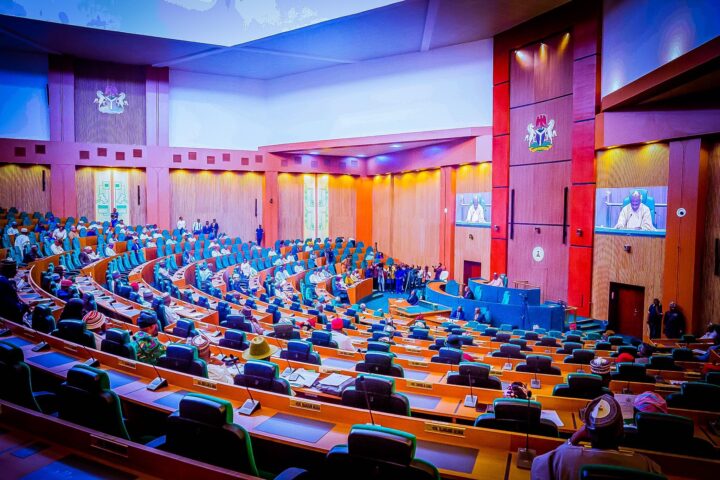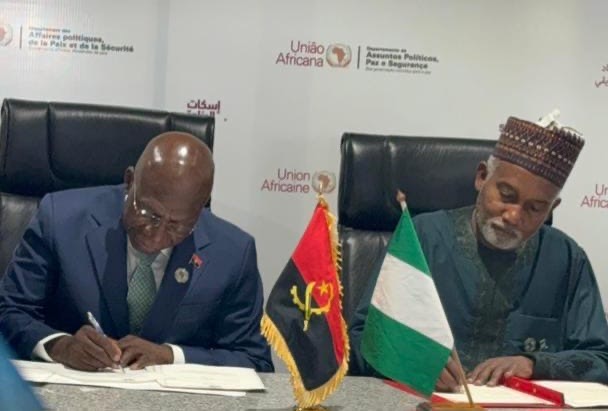In recent weeks, the Nigerian House of Representatives has expressed strong dissatisfaction with President Bola Tinubu’s decision to confer different national honours on key leaders of the legislative and judiciary arms of government. At the heart of the debate is the perceived disparity in the honors conferred upon the Speaker of the House of Representatives, Tajudeen Abbas, in contrast to those bestowed upon Senate President Godswill Akpabio and Chief Justice of Nigeria (CJN) Kudirat Kekere-Ekun. The issue has reignited long-standing tensions between the House of Representatives and the Senate over their perceived roles, statuses, and the constitutional framing of Nigeria’s bicameral legislature.
During his Independence Day broadcast, President Tinubu announced the conferment of the Grand Commander of the Order of the Niger (GCON) on Senate President Godswill Akpabio and CJN Kudirat Kekere-Ekun, while Speaker Tajudeen Abbas and Senate Deputy President Barau Jibrin were awarded the lesser honour of Commander of the Order of the Federal Republic (CFR). Additionally, Ben Kalu, the Deputy Speaker of the House of Representatives, was awarded the Commander of the Order of the Niger (CON).
This announcement drew immediate criticism from members of the House of Representatives, who viewed it as a clear display of inequality and an affront to the status of their chamber. In their view, the Senate and the House of Representatives are constitutionally equal, with neither chamber being superior or inferior to the other. Thus, they argue that their Speaker deserves the same honour as the Senate President, and that conferring a lesser award on Abbas undermines the equal standing of the two legislative chambers.
In a plenary session held shortly after Tinubu’s announcement, the House of Representatives unanimously supported a motion of urgent public importance moved by Philip Agbese, a lawmaker from Benue. Agbese argued that the national assembly is constitutionally established as a bicameral legislature composed of two equal chambers—the Senate and the House of Representatives—and that it is discriminatory for the Senate President to receive a higher national honour than the Speaker of the House. He pointed to an “ongoing and inappropriate culture of discrimination” against the House, often referred to as the “lower chamber,” a term that he said misrepresents the legal status of the House and diminishes its standing.
Agbese was not alone in his concerns. Several members of the House rose in support of his motion, echoing the sentiment that the use of terms such as “upper chamber” and “lower chamber” has long created the false impression that the Senate is superior to the House. This terminology, they argued, is not only outdated but also fails to reflect the constitutional reality that both chambers are integral and equal parts of Nigeria’s legislative process.
Agbese further highlighted the role of the Speaker in national governance, noting that the Speaker is ranked fourth in the protocol list of the Federal Republic of Nigeria, ahead of the CJN, who was awarded the higher GCON. The lawmaker argued that the conferment of the GCON on the CJN while awarding the Speaker a CFR was a misnomer and perpetuated the perception of the House as being subservient to the Senate.
Other lawmakers, including Sada Soli from Katsina, reinforced this argument by pointing out that individuals who had never held elective office, such as business moguls Aliko Dangote and Ngozi Okonjo-Iweala, had been awarded the GCON, while the Speaker of the House of Representatives, an elected official and key player in the legislative process, was given a lesser title. Soli lamented that the GCON had been conferred on private citizens like Dangote and Okonjo-Iweala while the Speaker was overlooked, describing this as a longstanding injustice that needed to be corrected.

Babajimi Benson from Lagos echoed these concerns, stating that the motion calling for the Speaker to be honoured with the GCON was about “putting democracy right.” He emphasized that the perceived inequality in the conferment of honours had been ongoing for too long and that it was time for the House to assert its rightful place in the national hierarchy.
The issue of unequal recognition between the two chambers is not new. Former Speaker of the House of Representatives, Femi Gbajabiamila, had also raised concerns during his tenure about being awarded a lower honour than the Senate President. Gbajabiamila, now Chief of Staff to President Tinubu, had written to the Minister of Special Duties in 2021 to express his dissatisfaction with being conferred the CFR while the Senate President received the GCON. This, according to lawmakers, underscores the deep-rooted nature of the perceived disparity and the need for corrective action.
The lawmakers further argued that the constitutional framework of Nigeria’s legislature does not support the notion of one chamber being superior to the other. As Agbese pointed out, the constitution clearly provides that for any bill to become law, it must be passed by both chambers in the same form. This requirement, he argued, affirms the equal status of the Senate and the House of Representatives as essential components of the legislative process. While the constitution assigns specific responsibilities to the Senate, such as the confirmation of certain presidential appointments, the House of Representatives plays a critical role in the appropriation of funds and oversight of government spending. These distinct roles, Agbese argued, are designed to maintain a system of checks and balances within the legislative arm, not to establish the superiority of one chamber over the other.
In light of these arguments, the House of Representatives passed a resolution rejecting the planned conferment of the CFR on Speaker Abbas and calling on President Tinubu to award him the GCON, the same honour given to the Senate President. The House also called for an amendment to the National Honours Act of 1964 to reflect the equal status of the Speaker and the Senate President, ensuring that the Speaker is conferred with the GCON in future honours lists. They emphasized that this change is necessary to correct the longstanding perception of inequality between the two chambers.
Furthermore, the House set up an ad hoc committee, chaired by House Leader Julius Ihonvbere, to engage with the Ministry of Special Duties and ensure that the Speaker is conferred with the GCON. The committee was given three days to report back to the House with its findings and recommendations.
Beyond the immediate issue of national honours, the debate in the House of Representatives touches on broader concerns about the language and protocols that govern Nigeria’s bicameral legislature. Several lawmakers called for an end to the use of terms like “upper chamber” and “lower chamber,” arguing that such language reinforces an unnecessary hierarchy between the Senate and the House. The House passed a resolution calling on all government institutions, officials, and the media to be mindful of language and titles that suggest a hierarchical structure between the Senate and the House of Representatives or their respective leaders.
The lawmakers also urged President Tinubu to uphold the spirit of bicameral equality as enshrined in the constitution when making decisions and recommendations that concern the leadership of the National Assembly. They stressed that while the Senate and the House of Representatives have distinct roles, both chambers are equal in their constitutional authority and should be treated as such in all matters of protocol and recognition.
The debate over national honours in Nigeria’s legislature is more than a fight over titles. It is a reflection of deeper issues concerning the balance of power and the perception of equality between the Senate and the House of Representatives. As Nigeria continues to evolve as a democratic nation, it is crucial that the language, protocols, and honours system reflect the constitutional reality of a bicameral legislature with two equal chambers.
By challenging the status quo and calling for equal recognition, the House of Representatives is seeking not only to assert its rightful place in the national hierarchy but also to correct a longstanding imbalance that has undermined the perception of Nigeria’s legislative arm. Whether or not President Tinubu will heed their call and amend his decision remains to be seen, but the House’s resolution marks an important step in addressing the inequalities that have persisted for too long.
SOURCES
- https://www.premiumtimesng.com/news/top-news/741205-updated-reps-reject-cfr-award-conferred-on-speaker-seek-same-honour-as-akpabio.html
- https://www.thecable.ng/breaking-reps-reject-cfr-national-honour-for-speaker-demand-gcon/amp/




